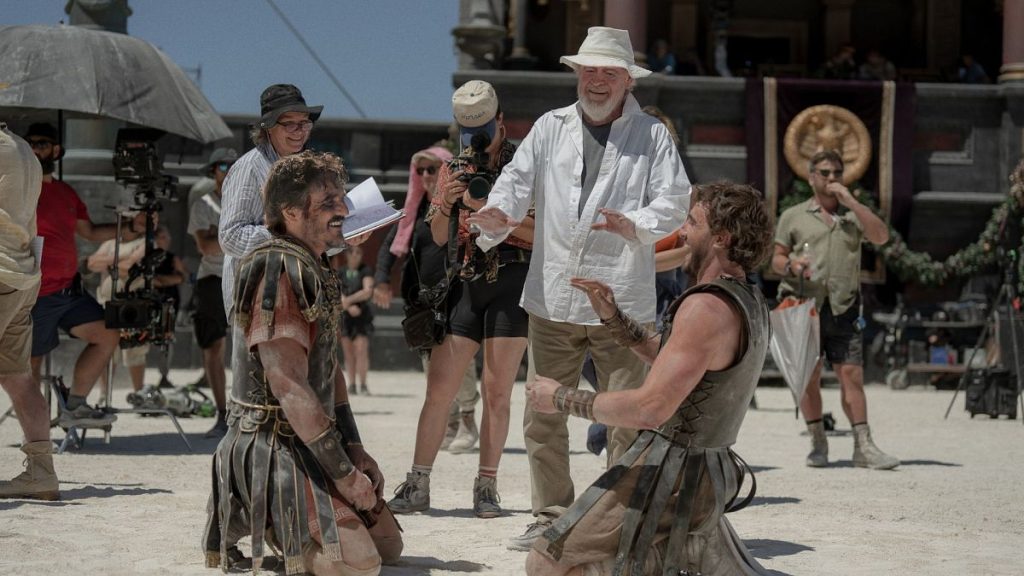The upcoming release of Gladiator II, directed by Ridley Scott and starring Hollywood icons Paul Mescal and Denzel Washington, has sparked a resurgence in interest for Malta as a prime tourist destination. The film, a sequel to the 2000 classic Gladiator, showcases the island’s historical architecture in a stunning cinematic context. With much of the filming set in Malta, the movie not only aims to capture the grandeur of ancient Rome but also attracts an influx of fans eager to visit the locations depicted on screen. Screen tourism, or “set-jetting,” has grown significantly in recent years, driven by audiences’ desire to explore places featured in favorite films and shows. This trend is expected to further amplify Malta’s appeal, drawing in visitors eager to step into the world of Gladiator II.
In recent history, screen tourism has emerged as one of the fastest-growing segments in the travel industry. Stats from organizations such as Expedia indicate that as much as 40% of travelers are influenced by films or TV shows when planning their trips. Streaming platforms like Netflix have played a pivotal role in this shift, with many viewers expressing increased interest in destinations after viewing them in series or films. The rapid evolution from watching a scene to wanting to visit the location reflects the emotional connection audiences feel with cinematic storytelling. Gladiator II, with its iconic backdrop and star-studded cast, is poised to enhance Malta’s reputation as a top-notch screen tourism destination and elevate the island’s economic prospects.
Malta’s rich historical architecture makes it an ideal substitute for ancient Rome, and Ridley Scott’s decision to film there for Gladiator II is a testament to this. Commenting on Malta, Denzel Washington noted that the island itself feels like a living piece of history, making it an exceptional site for filming. The centerpiece of the production was Fort Ricasoli, an impressive 17th-century fortress that was transformed into a colossal Roman amphitheater. With advanced production techniques, the film recreates the essence of ancient Roman structures, enhancing the visual splendor of the historical narrative. Such ambitious projects showcase Malta not just as a tourist destination, but as a character in its own right, breathing life into the legends of the past.
The economic ripple effects of blockbuster films are profound. Productions like Gladiator II boost both visibility and tourism in Malta, with experts estimating a substantial increase in visitor numbers. Previous productions, such as HBO’s Game of Thrones, have seen similar results, where certain regions experience a booming tourism economy tied directly to film exposure. For Malta, Gladiator II offers a notable platform to elevate its unique heritage on a global scale, echoing the successes observed in other regions influenced by screen tourism. As fans embark on tours of filming locations such as Fort Ricasoli and Valletta’s Grand Harbour, Malta stands to benefit economically while also crafting a rich historical narrative for future guests.
While the burgeoning screen tourism holds great promise, it also raises the risk of overtourism, which can overwhelm local infrastructure and resident communities. Finding a balance between attracting tourists and ensuring a sustainable environment is crucial. Industry experts advocate for preemptive measures, such as planned timed entries and alternative routes for visitors, to mitigate potential challenges arising from increased visitor numbers. Malta’s tourism body works in collaboration with its film commission to manage these challenges proactively. The island’s long-standing strategies indicate its readiness to harness the benefits of set-jetting while minimizing adverse impacts.
The future of Malta as a cinematic destination appears bright, particularly as Gladiator II reinvigorates interest in the region’s historical and cultural significance. Recognizing the importance of sustainable practices, the island aims to solidify its status as a leading site for screen tourism by showing off its captivating landscapes and rich heritage. The success of Gladiator II could pave the way for long-term tourism growth, allowing Malta to thrive both as a filming location and as a cultural beacon. Ridley Scott’s endorsement of the island’s liveliness and charm positions Malta to gain even more recognition as a sought-after destination for movie lovers and travelers alike.














